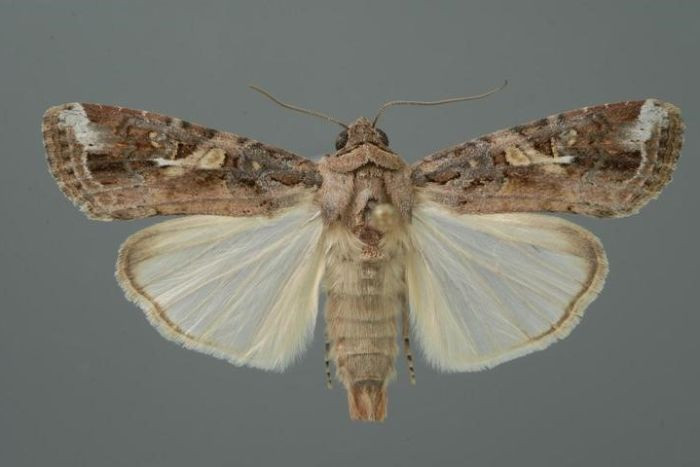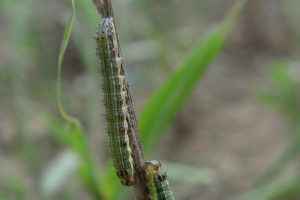General News
13 February, 2020
Newly arrived pest can wipe out crops overnight
A devastating invasive insect that has destroyed crops around the world has been detected in Australia for the first time.

A devastating invasive insect that has destroyed crops around the world has been detected in Australia for the first time.
The Fall armyworm has been found in the Torres Strait, prompting biosecurity alerts because of the potential to cause major damage to the agricultural industry.
In areas where the moth has taken hold, the destruction of crops has happened almost overnight.
Minister for Agricultural Industry Development and Fisheries Mark Furner said the discovery of fall armyworm (Spodoptera frugiperda) showed just how critical it was for everyone to play their role in protecting Queensland’s critical agricultural production and environment.
“Fall armyworm is an invasive moth pest that feeds in large numbers on more than 350 plant species, causing major damage to economically important cultivated grasses such as maize, rice, sorghum, sugarcane and wheat, and also to other horticultural crops and cotton,” Mr Furner said
"At this stage, there's no detection of any crops that have been damaged," he said.
Member for Cook Cynthia Lui said the moths were native to tropical and sub-tropical areas of the Americas but now posed a risk to crops.
“These moths mostly spread through natural means because they are strong fliers, but it is also important for our farmers for everyone to be aware of biosecurity and the potential to spread this and other pests,” Ms Lui said.
"These moths can fly up to 100 kilometres a night and are very destructive.”
Biosecurity Queensland's Malcolm Letts said specialised moth traps would be placed across Queensland to detect and contain any further spread of the pest.
"Destruction of crops can happen almost overnight when population levels are high," he said.
So far only six have been caught in traps on Erub and Saibai islands. They were captured in late January.
However, Mr Letts is concerned the pest could already have migrated to mainland Australia.
"The traps are primarily used for surveillance purposes, so this is to actually try and find out how far this pest has spread at this point in time," he said.

According to the Department of Primary Industries website “The fall armyworm is native to tropical to sub-tropical areas of America. Initial detection in Africa in 2016 saw the fall armyworm spread to more than 30 countries over 3 years. In 2018, the fall armyworm was detected in India and Sri Lanka. In 2019 it had spread to Bangladesh, Thailand, Myanmar, China and Indonesia. A suitable climate, trade and transport routes mean Australia could potentially face a high threat of fall armyworm invasions originating from neighbouring and trading countries.”
Have you seen the fall armyworm?
Be on the lookout and report signs to Biosecurity Queensland on 13 25 23 or contact the Exotic Plant Pest Hotline on 1800 084 881.



